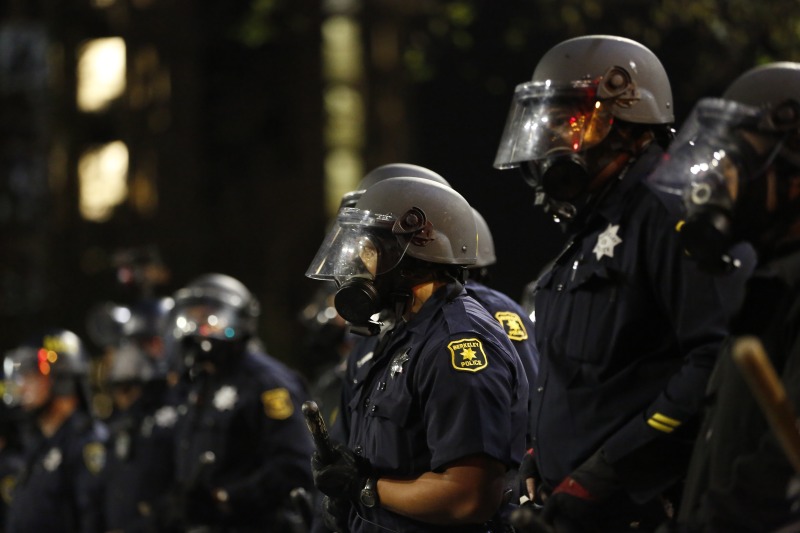As Berkeley gets ready for a third night of protests arising from the police killings of African-American men in Missouri and New York, Mayor Tom Bates says he'd like to see some sort of communication between city officials and march organizers to head off the kind of unrest the city has seen the past two nights.
The disturbances -- in which small numbers of marchers among the larger, nonviolent crowds have vandalized businesses around downtown Berkeley, thrown objects at police and fought with other protesters -- have resulted in about a dozen arrests. Protest organizers have criticized police for an aggressive response on Saturday night that included batons, tear gas and the reported use of "less than lethal" munitions such as rubber bullets or beanbags.
Bates said in an interview with KQED's Tara Siler on Monday that in protests during the Vietnam War era, it was common for protest organizers to have contact with public officials.
"It really makes sense to say, 'Here's where we plan to gather, this is what we plan to do at the gathering, and we're going to march down these streets -- this is the route we're going to take,' " Bates said. "And that way, the police and others can pretty much assure that it'll be safe and there won't be any particular violence."
Bates said that although he's spoken on an "informal" basis with some involved in the protests, he's unsure whether other city officials have had such discussions. He said part of the problem in doing so is that some activists -- such as those in the ongoing Occupy Oakland movement -- aren't interested in engaging with officials.
